
Nano Materials Science
metrics 2024
Advancing the Frontiers of Nanotechnology.
Introduction
Nano Materials Science is a premier open-access journal dedicated to the dissemination of groundbreaking research in the fields of nanotechnology, materials science, and chemical engineering. Published by KEAI PUBLISHING LTD, this journal has quickly established itself as a leading platform in its area since its inception in 2019, with impressive rankings in the Scopus database, holding a Q1 position across multiple categories, including Chemical Engineering and Materials Science. Based in Beijing, China, Nano Materials Science provides researchers and practitioners access to a wealth of high-quality peer-reviewed articles, fostering innovation and collaboration within the scientific community. With its impact factor steadily rising and a commitment to open access, the journal aims to bridge the gap between theoretical research and practical applications, making it an essential resource for professionals and students eager to stay at the forefront of materials research and nanotechnology advancements.
Metrics 2024
 1.72
1.72 12.60
12.60 12.40
12.40 33
33Metrics History
Rank 2024
Scopus
IF (Web Of Science)
JCI (Web Of Science)
Quartile History
Similar Journals
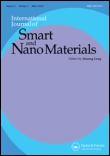
International Journal of Smart and Nano Materials
Pioneering Research in Sustainable EngineeringThe International Journal of Smart and Nano Materials is a leading peer-reviewed publication in the fields of civil and structural engineering, mechanics of materials, and materials science, published by Taylor & Francis Ltd. With its notable Open Access format since 2010, this journal aims to disseminate innovative research and advancements in smart materials and nano technologies, which are crucial for the development of sustainable and efficient engineering solutions. The journal has established a strong reputation, being classified in the Q1 category for Civil and Structural Engineering and Mechanics of Materials, and ranked highly in Scopus with impressive percentiles, illustrating its impact within the academic community. Covering research from 2010 to 2024, it serves as an essential resource for researchers, professionals, and students seeking to stay at the forefront of material innovation and engineering prowess. Current access options facilitate the broad distribution of knowledge, reflecting the journal's commitment to advancing scientific inquiry and application in an increasingly nanotechnology-driven world.

APL Materials
Transforming ideas into impactful materials solutions.APL Materials is a prestigious open access journal published by AIP Publishing that has been at the forefront of disseminating cutting-edge research in the fields of materials science and engineering since its inception in 2013. With an impressive impact factor reflecting its significance, APL Materials ranks securely in the Q1 quartile in both Engineering (miscellaneous) and Materials Science (miscellaneous) categories, underscoring its role as a vital resource for innovative scientific inquiry. Ranked highly in Scopus, particularly in General Engineering (24/307) and General Materials Science (78/463), the journal provides a platform for researchers, professionals, and students to share their findings and advancements that push the boundaries of material applications. Furthermore, its open access policy ensures that high-quality research is freely available to a global audience, fostering collaborative advancements in the scientific community. As the journal continues to evolve through to 2024, it remains committed to presenting groundbreaking studies that contribute to the advancement of materials science and engineering disciplines.Explore APL Materials to stay at the cutting edge of research and innovation.
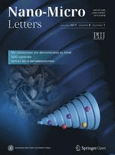
Nano-Micro Letters
Unveiling the future of materials science, one letter at a time.Nano-Micro Letters is a premier open-access journal published by Shanghai Jiao Tong University Press, specializing in groundbreaking research in the fields of Electrical and Electronic Engineering, Nanoscience, and Materials Science. Launched in 2009, this journal has rapidly established its reputation, achieving Q1 ranking across various categories, including Electronic, Optical and Magnetic Materials, and Surfaces, Coatings and Films, indicating its significant impact within the academic community. With an impressive Scopus ranking of #5 out of 797 in Electrical and Electronic Engineering and #2 in Surfaces, Coatings and Films, Nano-Micro Letters serves as a vital platform for disseminating cutting-edge insights and innovations in nanotechnology. Researchers, professionals, and students are encouraged to engage with the open-access content, fostering a collaborative environment that promotes the advancement of knowledge in these dynamic fields.

FULLERENES NANOTUBES AND CARBON NANOSTRUCTURES
Exploring the Future of Carbon NanostructuresFULLERENES NANOTUBES AND CARBON NANOSTRUCTURES, published by Taylor & Francis Inc, stands at the forefront of research in the fields of nanotechnology, materials science, and organic chemistry. With an ISSN of 1536-383X and an E-ISSN of 1536-4046, this journal offers a critical platform for disseminating significant findings related to carbon-based nanostructures, materials characterization, and their innovative applications. Recognized for its scholarly impact, the journal enjoys a Q2 ranking in several fields, including Atomic and Molecular Physics, Materials Science, and Organic Chemistry, reflecting its commitment to quality research. Since its inception in 2002, it has maintained a rigorous publication standard and provides open access options, enabling a diverse audience, from researchers to industry professionals, to engage with the latest advancements. The journal's comprehensive scope across converged years until 2024 emphasizes its pivotal role in fostering knowledge in the rapidly evolving realm of nanoscience and nanotechnology. Researchers and practitioners alike are encouraged to explore the cutting-edge research showcased in this vital resource.

MRS Advances
Empowering Research Through Rigorous Peer ReviewMRS Advances, published by Springer Heidelberg, is an esteemed academic journal that serves as a vital platform for disseminating cutting-edge research in the fields of condensed matter physics, materials science, and mechanical engineering. With an ISSN of 2731-5894 and an E-ISSN of 2059-8521, the journal is hosted in Switzerland and encompasses an impressive spectrum of innovative studies that impact both theoretical and practical applications. Throughout its converged years from 2012 and continuing through 2024, MRS Advances has established itself with notable rankings, including Q4 in condensed matter physics and Q3 in several related categories. This journal not only enriches the academic community with its rigorous peer-reviewed articles, but also encourages open discussions that further advance research innovations. Although currently not designated as an open-access journal, its accessibility through institutional subscriptions ensures that professionals, researchers, and students can engage with the latest advancements in the material science arena. Emphasizing its relevance, MRS Advances is dedicated to fostering interdisciplinary collaboration and inspiring new discoveries within the global research community.

Small Science
Catalyzing Knowledge in Materials and EngineeringSmall Science is an esteemed open-access journal published by WILEY, dedicated to pioneering research in the realms of catalysis, materials science, and chemical engineering. Established in 2021, this journal has rapidly gained recognition, ranking in the top quartiles (Q1) in various categories, including a remarkable 17th position in Materials Science and 8th in Chemical Engineering on Scopus. With an impact factor reflective of its growing influence and a commitment to disseminating cutting-edge knowledge, Small Science serves as a crucial platform for researchers, professionals, and students seeking to explore the latest advancements and applications in these dynamic fields. The journal's open-access model ensures wide reach and accessibility, facilitating collaboration and innovation across disciplines. Its headquarters are located in the United States, at 111 River St, Hoboken, NJ, supporting a global readership keen on addressing contemporary scientific challenges and driving progress in technology and materials synthesis.
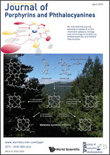
JOURNAL OF PORPHYRINS AND PHTHALOCYANINES
Pioneering Discoveries in Versatile Molecular StructuresJOURNAL OF PORPHYRINS AND PHTHALOCYANINES, published by WORLD SCIENTIFIC PUBL CO PTE LTD, is an influential peer-reviewed journal dedicated to advancing the field of porphyrins and phthalocyanines, key compounds in both chemistry and materials science. With an ISSN of 1088-4246 and an E-ISSN of 1099-1409, this journal has been a vital resource since its inception in 1997 and is expected to continue until 2024. The journal holds a respectable position in the academic landscape, categorized in the Q3 quartile for miscellaneous Chemistry journals and ranked #252 out of 408 in the general chemistry category according to Scopus, reflecting a growing impact in the field despite its current percentile standing at 38th. JOURNAL OF PORPHYRINS AND PHTHALOCYANINES seeks to publish original research articles, reviews, and critical studies that explore the synthesis, characterization, and applications of these versatile compounds, which play essential roles in numerous scientific disciplines, from catalysis to materials development. This journal is an indispensable platform for researchers and professionals seeking to disseminate their findings, engage with contemporary discussions, and stay informed about cutting-edge advancements in porphyrin and phthalocyanine research.

JOURNAL OF MATERIALS SCIENCE
Exploring Breakthroughs in Materials ScienceJOURNAL OF MATERIALS SCIENCE, published by SPRINGER, stands as a highly regarded periodical in the field of materials science, delivering impactful research since its inception in 1966. With an impressive Q1 ranking in both Mechanical Engineering and Mechanics of Materials, alongside strong Q2 positions in Ceramics, Composites, and General Materials Science, this journal serves as a pivotal resource for scholars and practitioners alike. It offers insightful contributions that span a diverse range of topics, from emerging materials to advanced applications in engineering. With a robust Scopus ranking reflecting its global influence—ranking 91 out of 672 in Mechanical Engineering and 63 out of 398 in Mechanics of Materials—the JOURNAL OF MATERIALS SCIENCE maintains an essential role in advancing the understanding and innovation within the discipline. Researchers, professionals, and students are encouraged to access this esteemed journal to keep abreast of groundbreaking findings and methodologies that shape the future of materials science.
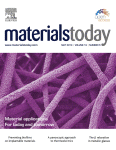
Materials Today
Pioneering Research for Tomorrow's TechnologiesMaterials Today is a premier academic journal published by Elsevier Science Ltd, specializing in the dynamic fields of materials science, mechanical engineering, and condensed matter physics. Established in 1999, the journal has garnered an enviable reputation, consistently ranking in the Q1 category across multiple disciplines including mechanics of materials and general materials science, reflecting its influence and high-quality research output. With an impressive Scopus ranking—4th in both mechanical engineering and mechanics of materials, and 6th in condensed matter physics—Materials Today serves as an essential resource for researchers, professionals, and students seeking to stay at the forefront of developments in material innovations and applications. The journal is known for its commitment to publishing significant research findings and reviews, making it a vital platform for disseminating knowledge and fostering collaboration in the rapidly evolving materials field. Although it does not offer open access, its robust impact factor underscores the importance of the content published, ensuring wide visibility and citation among the academic community. Explore the rich tapestry of materials research with Materials Today, where groundbreaking insights pave the way for future technological advancements.
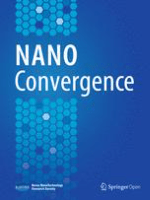
Nano Convergence
Transforming the landscape of materials science through collaboration.Nano Convergence is a premier open access journal dedicated to the rapidly evolving fields of nanotechnology, materials science, and engineering. Published by SPRINGER, this journal has been at the forefront of interdisciplinary research since its inception in 2014, and is set to continue its journey until 2024. With an impressive impact factor and recognition as Q1 in both Engineering (miscellaneous) and Materials Science (miscellaneous) categories, Nano Convergence ranks among the top publications, listed as Rank #8 out of 307 in General Engineering and Rank #34 out of 463 in General Materials Science according to Scopus metrics. This journal provides a platform for researchers, professionals, and students to share pioneering studies that converge different disciplines within nanotechnology. With its commitment to open access, Nano Convergence ensures that cutting-edge research is readily available to the global community, fostering innovation and collaborative advancements in the field.